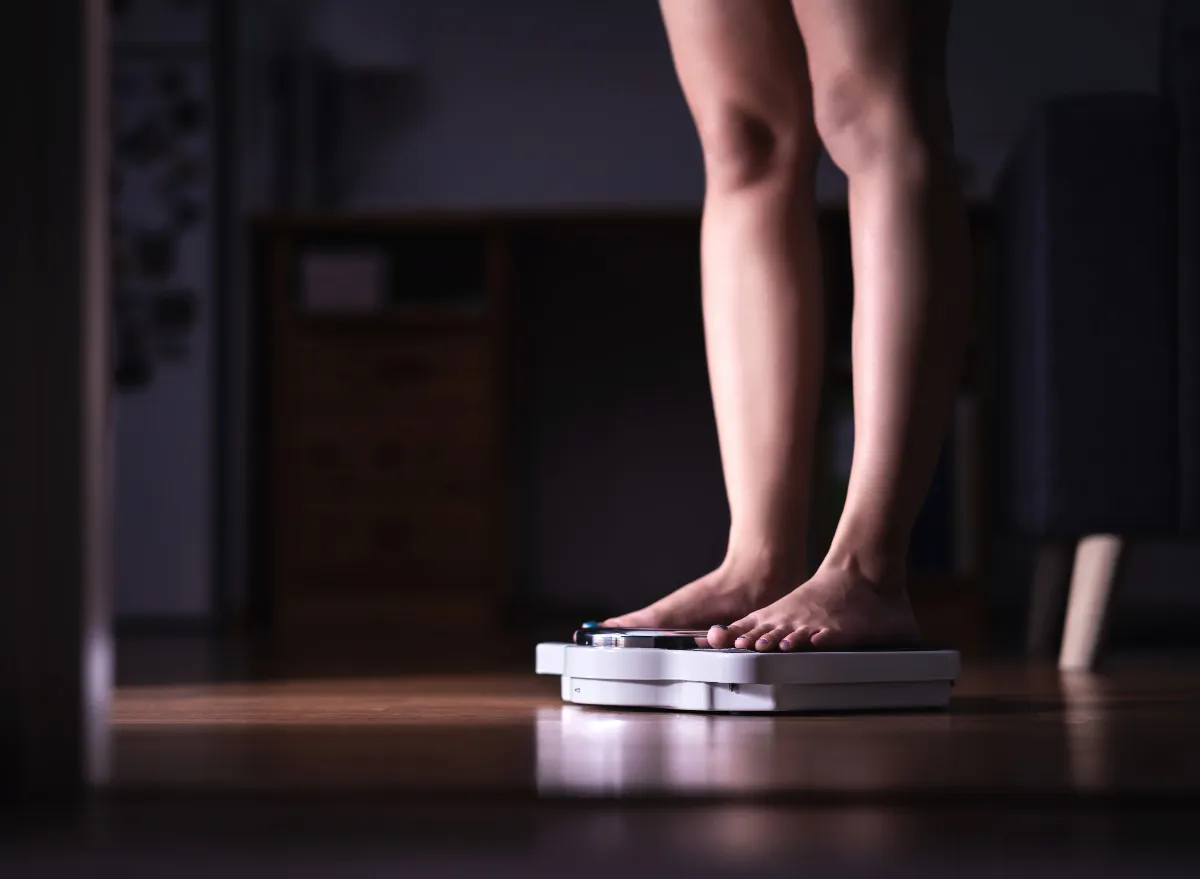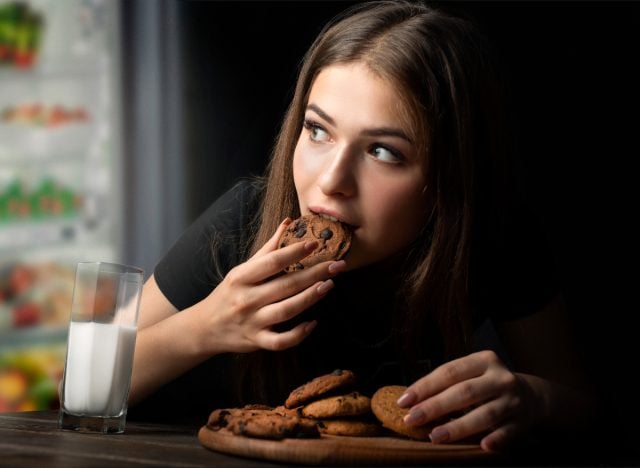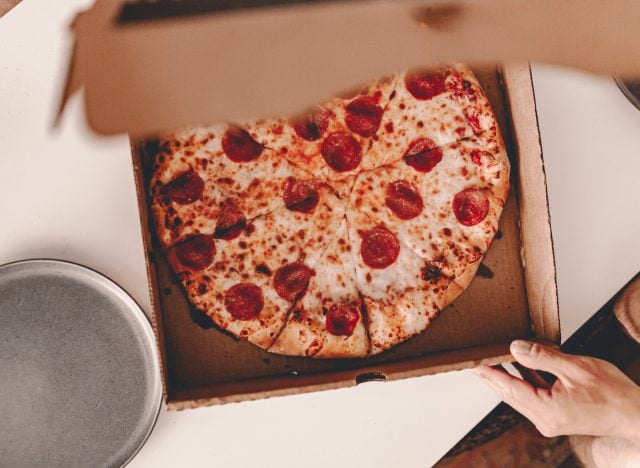1. Skipping dinner can cause weight gain
Skipping dinner can lead to late-night hunger and potentially lead to snacking, overeating, and consuming more calories at night. Research shows that people who eat closer to bedtime tend to eat more calories than those who eat their last meal of the day earlier. Over time, eating more calories can lead to weight gain.

Many bad habits at night can make you gain weight quickly.
2. Snacking too much
Potato chips, cookies, ice cream, chocolate... are snacks that are easy to digest and do not make you feel full for long. Therefore, many people think that they do not cause weight gain, even when eaten at night. However, over time, these high-calorie snacks can cause excess calories and weight gain.

High-calorie snacks can lead to excess calorie intake and weight gain.
To fix this, choose nutrient-rich snacks earlier in the day and practice portion control.
3. Eating too close to bedtime
Eating a high-calorie meal too close to bedtime can disrupt sleep and contribute to weight gain. The body needs time to digest food, and falling asleep right after eating can lead to discomfort, affecting sleep quality. The higher the calorie content of a meal, the more it affects sleep.

The more calories a meal has, the more it affects sleep.
4. Lack of sleep
When you lack sleep, your body craves high-energy foods and hormonal imbalances. This can lead to increased appetite and decreased metabolism, making it harder to maintain weight.

When you're sleep deprived, you crave sweets and are more likely to reach for junk food.
Studies have shown that people who sleep less than 7 hours a night have increased levels of cortisol (a hormone that promotes fat storage) and ghrelin (a hunger hormone). When you lack sleep, you crave sweets and are more likely to reach for junk food. Over time, this can lead to uncontrollable weight gain.
5. Check your phone before going to bed
The blue light from your smartphone stimulates your brain, making it difficult to fall asleep. Research shows that the blue light emitted from screens interferes with melatonin production, affecting sleep. Poor sleep quality is linked to weight gain.
Therefore, it is important to establish a healthy, technology-free relaxation routine before bed.

Poor sleep quality is linked to weight gain.
6. Working too late
Late night work sessions can increase stress levels and disrupt sleep. Increased levels of cortisol (the stress hormone) can increase cravings for high-calorie foods and lead to increased belly fat.

Working too late can increase cortisol levels in the body, which can lead to weight gain.
7. Drink alcohol to help you sleep
Many people have the habit of drinking a glass of wine every night to help them sleep better. However, alcohol actually disrupts melatonin levels in the brain. In addition to poor sleep quality, the empty calories from alcohol are the equivalent of late-night snacking.

Excess calories from alcoholic beverages can cause weight gain if consumed regularly.
Many studies have shown that alcohol interferes with REM sleep, affecting the body's ability to rest and recover. Additionally, excess calories from alcoholic beverages can lead to weight gain if consumed regularly.
8. Exercise in the evening
While evening workouts have their benefits, intense exercise too close to bedtime can speed up your metabolism and make it difficult to relax. Additionally, the adrenaline and increased heart rate that comes with exercise can interfere with your ability to fall asleep.
Not only that, exercise can make you hungry, which increases your cravings at night.

Exercise can make you hungry, which increases your cravings at night.
9. Eating while watching TV
Eating while watching TV is a common evening habit that can contribute to weight gain. The distraction of watching TV prevents the brain from signaling to the stomach that the body has had enough to eat, which can lead to consuming more calories.

Eating while watching TV is a common evening habit that can contribute to weight gain.
10. Eating too much dinner
Many people consider dinner to be the most important meal of the day, so they often eat a lot of calories at this time. However, dinner is the time for the body to rest. In the evening, there is often less activity, and the energy consumption is lower than the amount absorbed into the body. Over time, excess energy will accumulate into fat and cause weight gain.

Don't eat too much dinner.
Instead, choose a balanced, portion-controlled dinner to aid digestion and promote good sleep.
Source




























![[Photo] The 9th Congress of the Party Committee of the Office of the President, term 2025-2030](https://vphoto.vietnam.vn/thumb/1200x675/vietnam/resource/IMAGE/2025/6/20/78e7f27e8c4b4edc8859f09572409ad3)

























![[Maritime News] Wan Hai Lines invests $150 million to buy 48,000 containers](https://vphoto.vietnam.vn/thumb/402x226/vietnam/resource/IMAGE/2025/6/20/c945a62aff624b4bb5c25e67e9bcc1cb)













































Comment (0)